After a multi-year hiatus due to the coronavirus pandemic, Inman Connect returned this week to New York City. The event got a new venue in New York Hilton Midtown, just a few steps from Central Park. The trees were blooming, the birds were out and the weather was perfect for rooftop parties.
Dozens of sessions took place over the course of the event’s three days, and those sessions featured both big-name executives as well as in-the-trenches agents and brokers. But gradually larger themes emerged, from challenges related to the portals to the slow progress of tech to the evolution of the agent. Read below to see what everyone was talking about, and don’t forget that Inman Connect Las Vegas is just four months away.
Zillow and its competitors
Zillow came up repeatedly on the Connect main stage, often in ways that highlighted its polarizing impact in the real estate industry. Realogy CEO Ryan Schneider, for example, was surprisingly frank when he told Brad Inman on Wednesday that Zillow is a competitor to his company. And, referring to the portals, he lamented that the real estate industry “let those companies get created.”
Schneider’s tone wasn’t incendiary, but it’s still not every day that the head of a major corporation openly admits a wish that a rival simply didn’t exist.
Schneider wasn’t the only executive who took shots at Zillow. Later that same day, eXp World Holdings’ founder and CEO Glenn Sanford concurred that he, too, sees Zillow as a competitor. Sanford recalled the early days of the portal era, when he worked at Keller Williams, and mentioned that he described syndicated listings as “slitting our throat.”
Brad Inman, left, with Glenn Sanford at Inman Connect. Credit: AJ Canaria & Mercedes Santiago of MoxiWorks
Zillow is always a topic of discussion at these events, which is a testament to how much the company has changed the industry. But this gathering was notable for how quickly and how often the company came up, and for how candid industry leaders were about it.
Of course, not everyone had a negative take. Inman had multiple conversations with attendees about Zillow, a number of whom said they use — and are happy with — the portal’s Premier Agent lead generation program. But it was still notable how often attendees brought up Zillow, often out of the blue.
For its part, Zillow sent President Susan Daimler to Connect. She appeared on the main stage and argued that Zillow is a partner to agents.
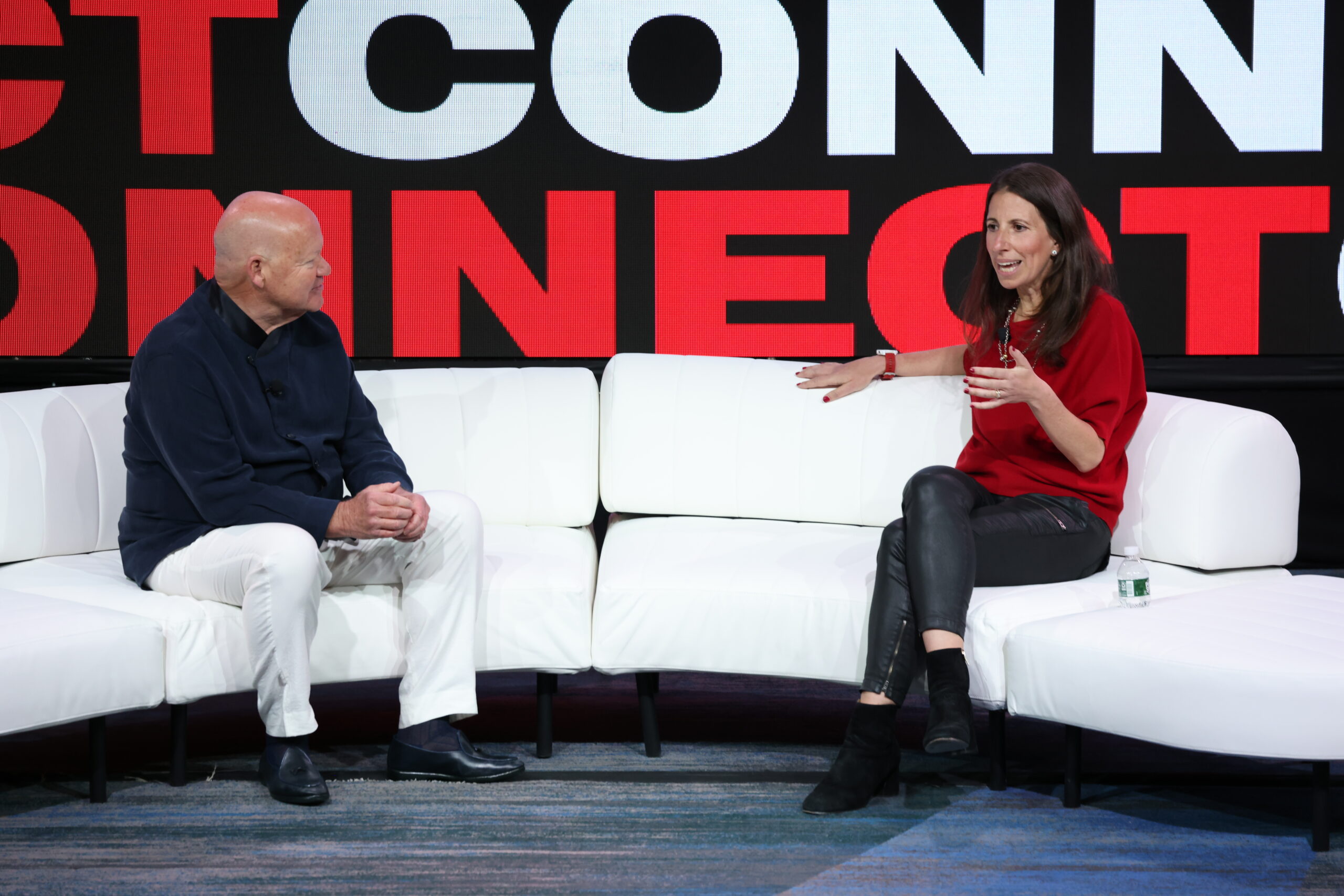
Brad Inman on the Inman Connect stage with Susan Daimler. Credit: AJ Canaria & Mercedes Santiago of MoxiWorks
CoStar versus Zillow
Speaking of Zillow, the company’s ongoing feud with CoStar also deserves a specific mention here. The feud has been simmering for some time now, but really blew up at the last Inman Connect, in Las Vegas, when CoStar CEO Andy Florance hinted — in the most thinly veiled way possible — that Zillow hijacks listings and blackmails agents.
Florance didn’t speak at this week’s event. However, Former Zillow CEO Spencer Rascoff did, and he accused CoStar of “rooting for chaos” in the real estate industry.
“When all the cards get thrown up in the air and everything changes, that’s when new entrants emerge, and new disruptors emerge,” Rascoff said. “And that’s very much what CoStar is trying to be.”
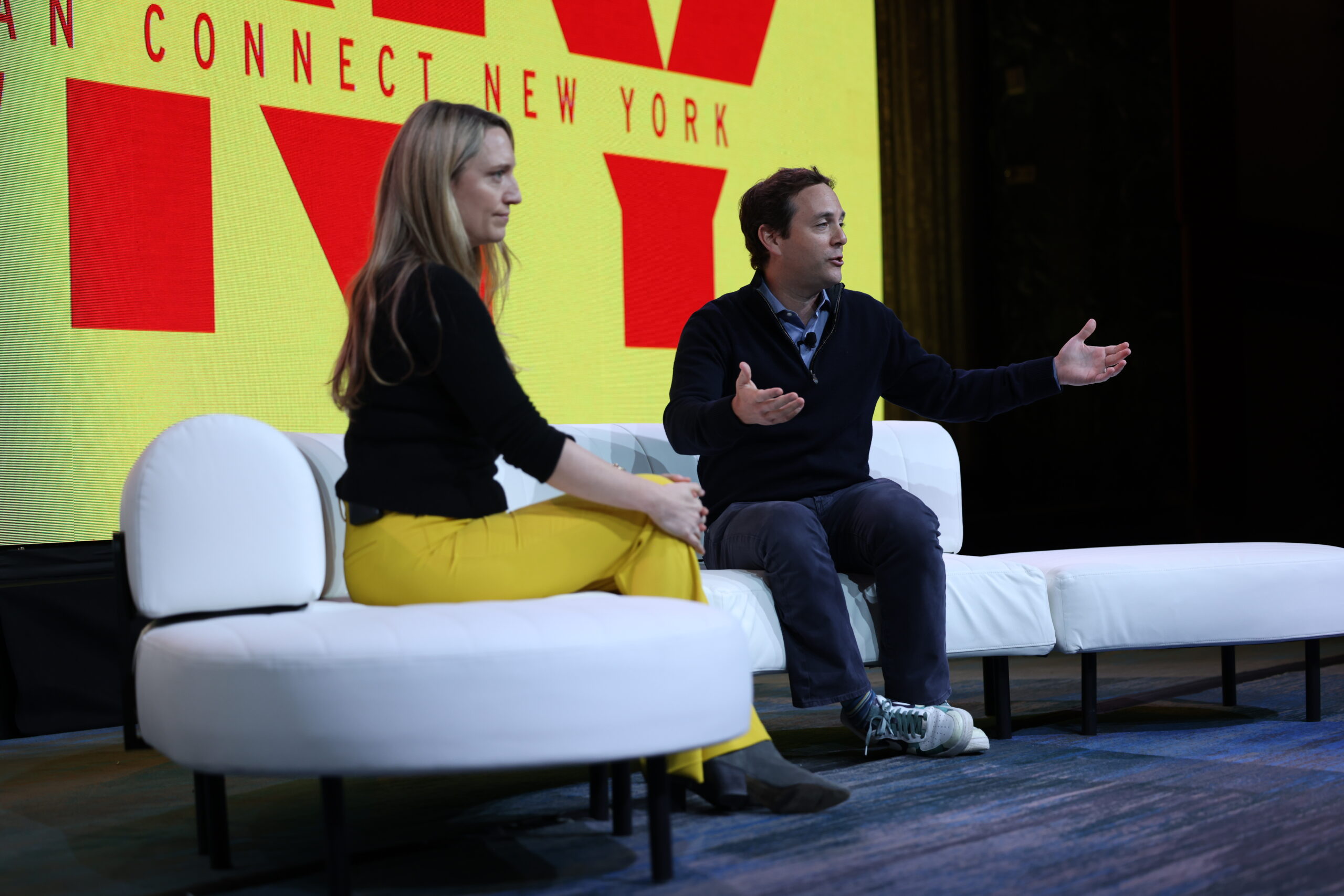
Moderator Clelia Warburg Peters and Spencer Rascoff at Inman Connect. Credit: AJ Canaria & Mercedes Santiago of MoxiWorks
Daimler also subtly shaded CoStar from the stage when she claimed that she could not actually remember the name of CoStar’s upcoming real estate portal for New York City — which will directly challenge Zillow-owned StreetEasy.
The name of that portal, by the way, is Citysnap. And while CoStar didn’t have any speakers at Connect, it did have ads for its brands — including Citysnap, Homes.com and others — all over the elevators and hallways.
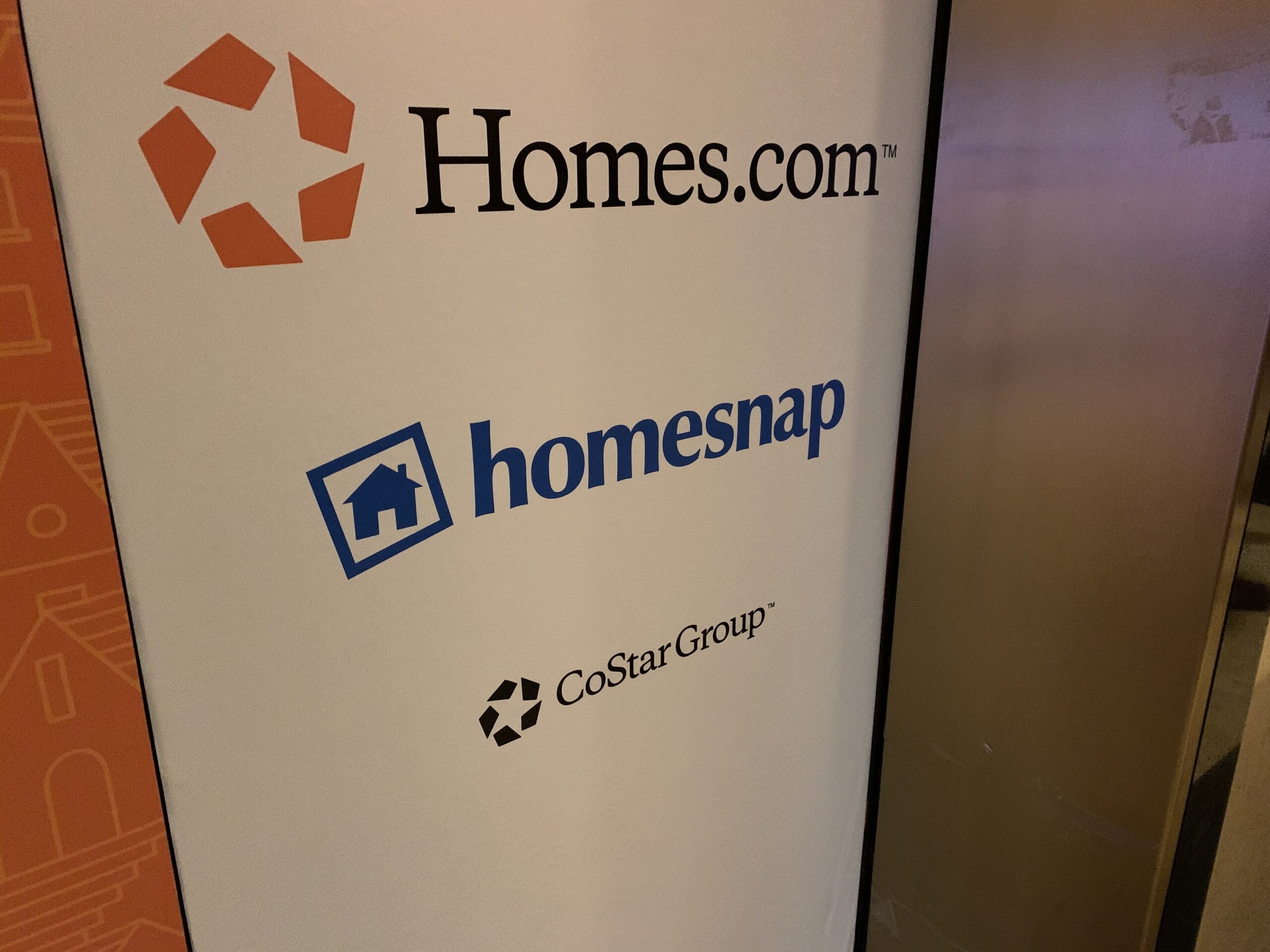
CoStar ads on a hotel elevator at Inman Connect. Credit: Jim Dalrymple II
The end of tech boosterism
Often at Connect, there’s a certain triumphalism when it comes to technology and real estate. Speakers often tout an array of tech solutions to agent problems, and there’s an underlying sense that the world is getting better and that technology is making that happen.
There was plenty of tech boosterism at this Connect too, but notably there was also some honesty about technology’s limitations in real estate. In a Thursday session, for example, Bright MLS CEO Brian Donnellan suggested real estate is experiencing “a lot of motion and not a lot of action” when it comes to technology. He also indicated technological progress is taking too long.
Coldwell Banker CEO M. Ryan Gorman spoke during the same session and described “pretty slow movement” on the tech front.
“We’ve invested more in improving the transaction than we probably spent going to the moon the first time, and it’s basically the same as it’s been for, I don’t know, 15, 20, 180 years,” he said.
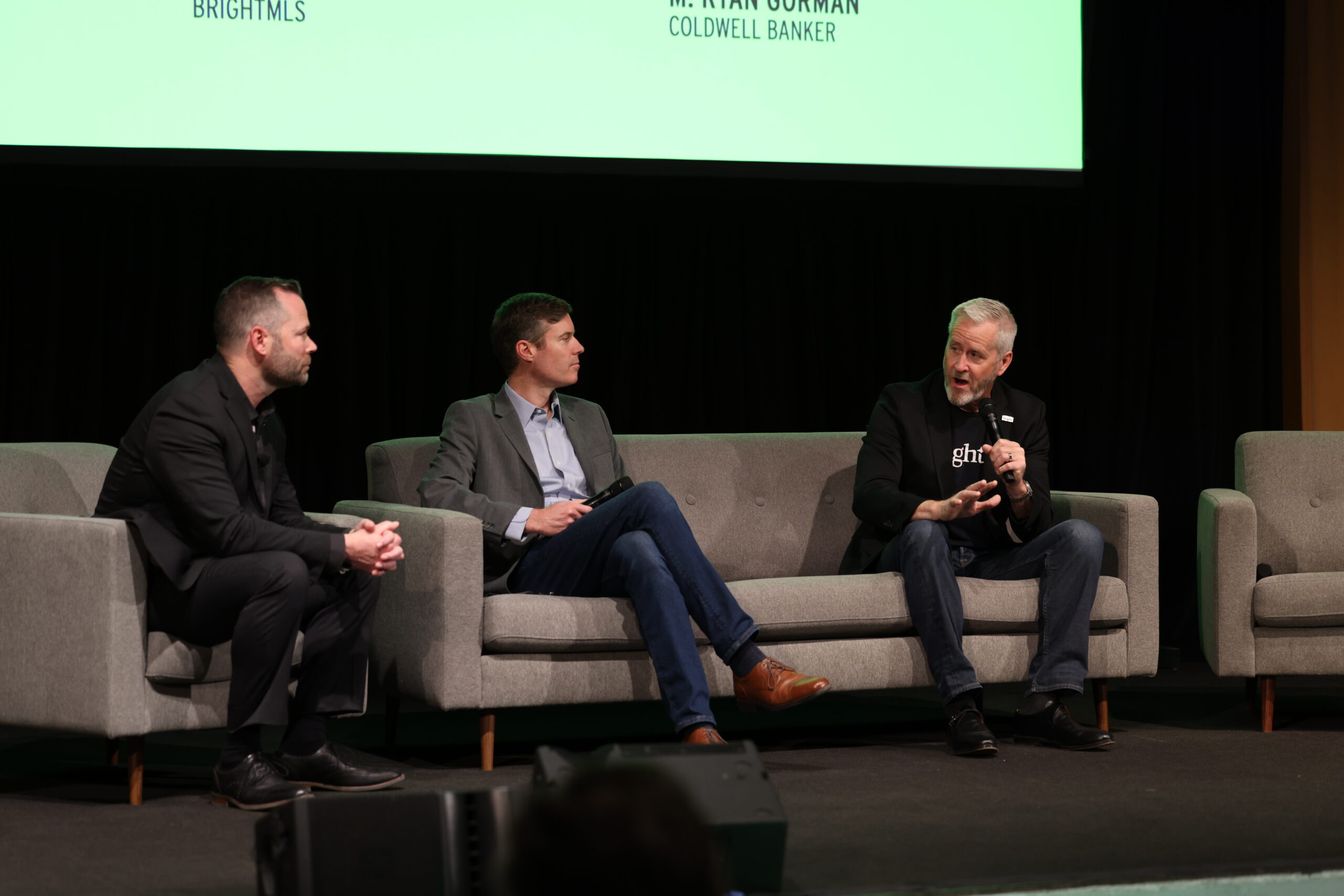
From left to right, moderator Sam DeBord, M. Ryan Gorman and Brian Donnellan. Credit: AJ Canaria & Mercedes Santiago of MoxiWorks
A similar theme came up during a session of CEO Connect, an invitation-only breakout gathering at the larger event. During that session, Chris Suarez, co-founder of real estate tech company Place Inc., said the real estate industry has been talking about an “end to end solution for way too long and if we don’t have that solved by 2030 we’ve missed an amazing opportunity.”
There was still plenty of enthusiasm for technology at this Connect. Keller Williams’ Marc King, for instance, appeared on stage and noted that the goal is to make purchasing a home as easy as ordering a pizza. And some speakers said they envision a future renaissance for smaller companies thanks to technology.
But more than any other Connect that this reporter has attended, there seemed to be an admission among leaders that so far technology has not proven to be nearly as transformative to real estate as many had hoped. Maybe it hasn’t even come close. This sentiment also seemed to trickle down in the ranks; again and again in conversations, attendees mentioned that despite the availability of new tech, the actual experience of many consumers isn’t really changing much.
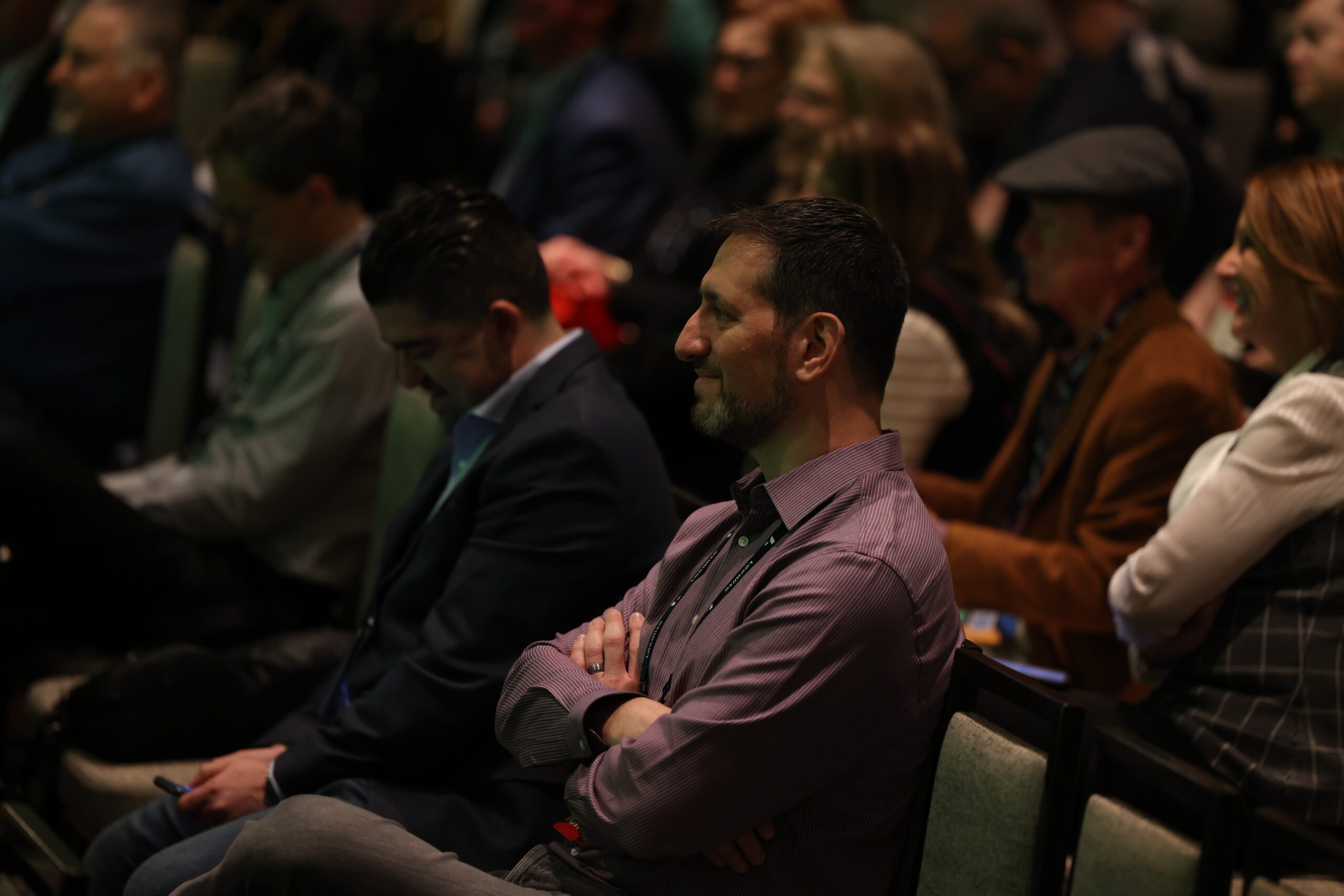
Attendees look on during a session of Inman Connect. Credit: AJ Canaria & Mercedes Santiago of MoxiWorks
The role of the agent
One of the underlying themes in many of the conversations about Zillow, technology, industry evolution and more is that the role of the agent is also changing. This theme pervaded the event, with both speakers and attendees frequently noting that agents have to adapt if they want to survive.
For example, celebrity broker Ryan Serhant urged agents to focus on personal branding. Mauricio Umansky, founder of The Agency — which is based in Los Angeles but is expanding now on the East Coast — told agents they need to be advisors if they want to thrive. Other leaders offered advice on how to introduce accountability into brokerages, and ways to see if agents are actually providing a return on their brokers’ investments. One session even offered tips on how agents and brokers can outsource their work to overseas assistants.
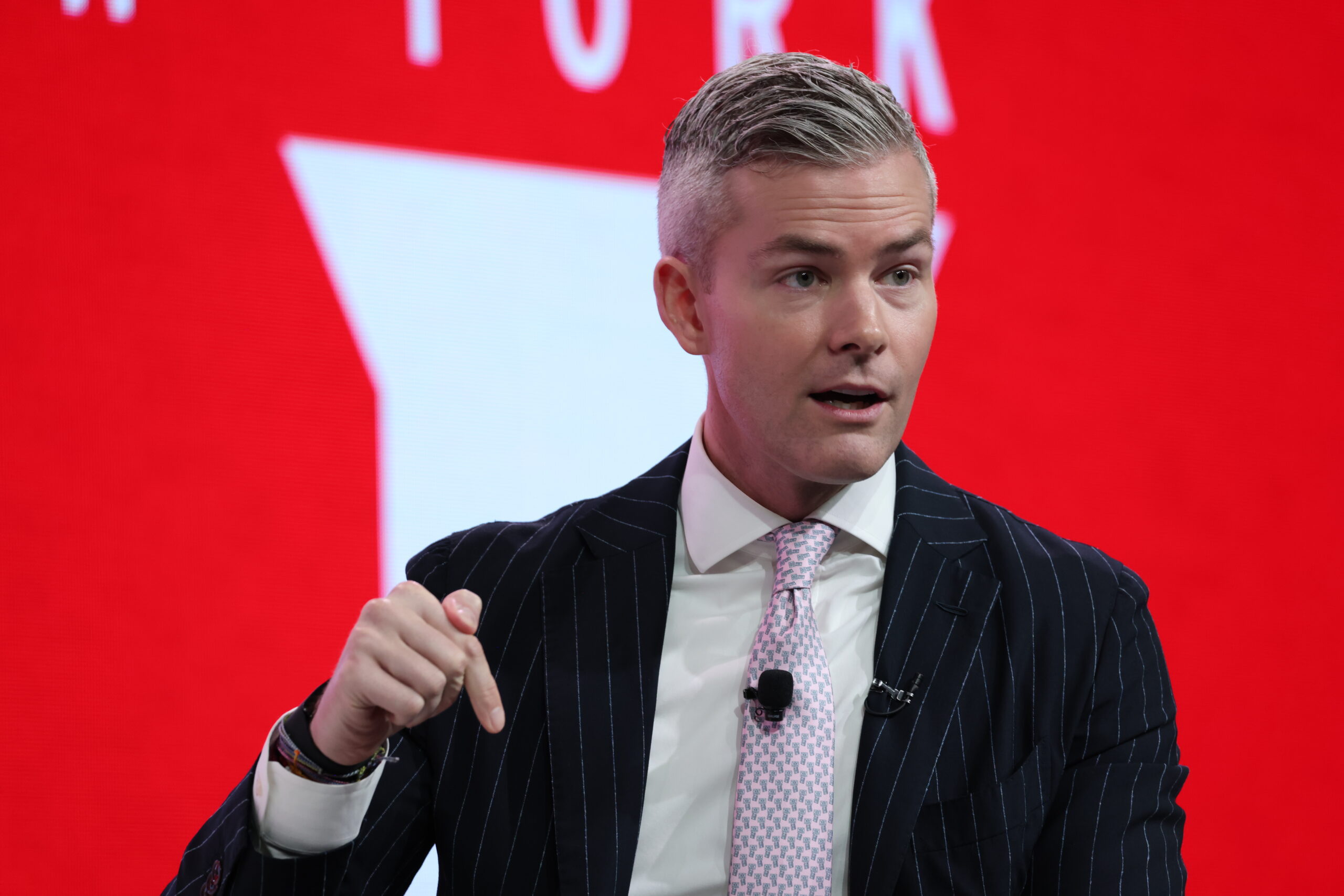
Ryan Serhant at Inman Connect. Credit: AJ Canaria & Mercedes Santiago of MoxiWorks
There were too many specifics to rehash everything here, but amid all the big questions debated at the event it’s worth remembering that Connect really is about agents honing their craft, and much of the content ultimately focused on that. And against that backdrop, there was definitely a sense that real estate is at a crossroads right now thanks to technology, the pandemic, inventory issues and even a possible recession.
Brad Inman and the industry
Connect kicked off on Tuesday morning with a presentation from Inman founder Brad Inman. He started the company way back in the 1990s, and as it turned out this was Connect’s 25th anniversary. Brad — who sold the company to Beringer Capital last year but retains a stake — shared his thought on the industry, but also got to take something of a victory lap during his time on stage, reflecting on the past and receiving applause for having built a community of like-minded real estate professionals.
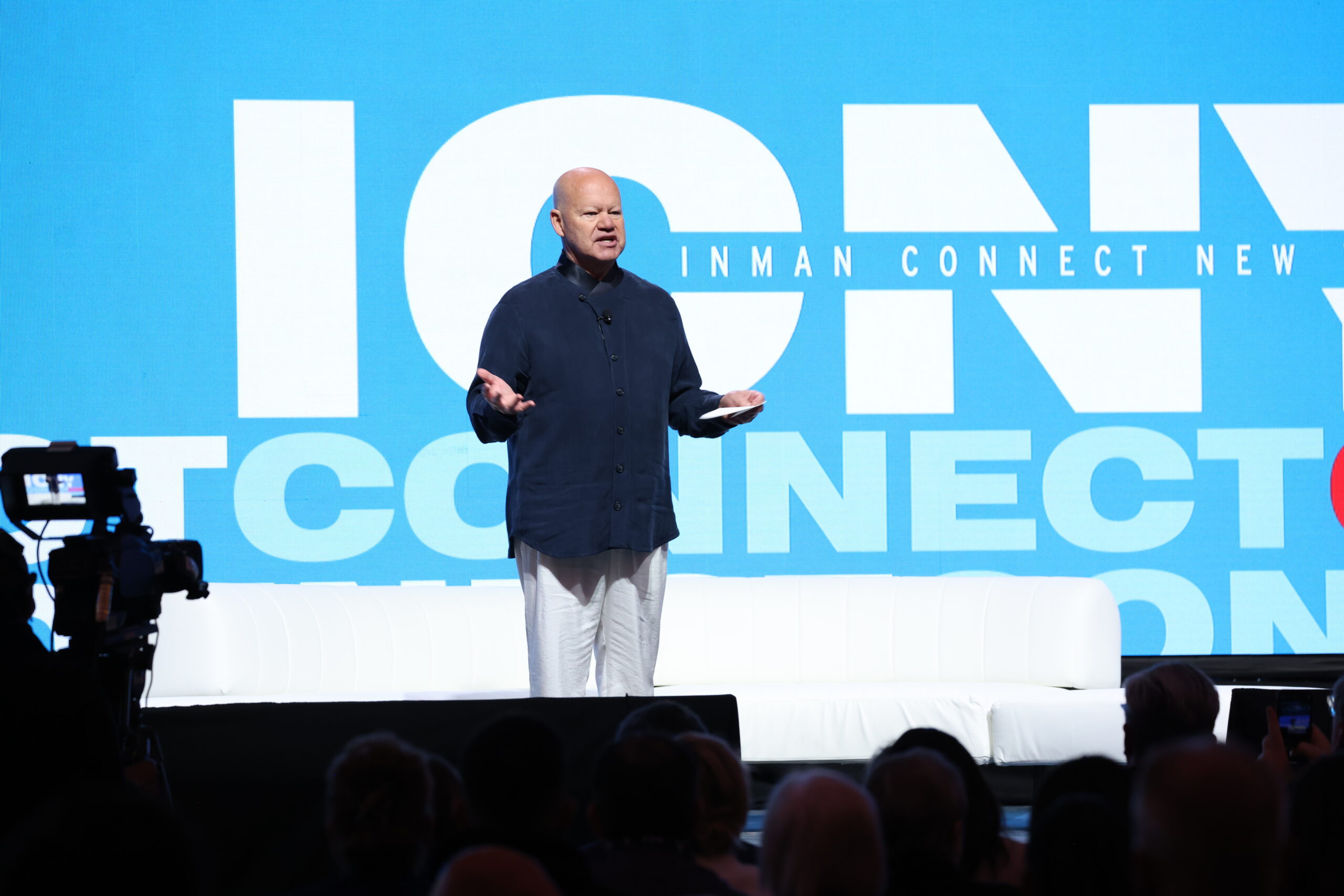
Brad Inman on stage at Inman Connect. Credit: AJ Canaria & Mercedes Santiago of MoxiWorks
In subsequent conversations with attendees, Brad’s name came up often as someone who has had a legitimate and lasting impact. That did not, however, mean that Brad was resting on his laurels; he was the one who moderated many of the event’s hardest-hitting and most entertaining sessions, including several of the ones mentioned above.
Email Jim Dalrymple II



 Are You Interested in West Eleventh Residences Miami?
Are You Interested in West Eleventh Residences Miami? Are You Interested in ONE Park Tower by Turnberry?
Are You Interested in ONE Park Tower by Turnberry? Are You Interested in Diesel Wynwood Condominium?
Are You Interested in Diesel Wynwood Condominium? Are You Interested in Five Park Miami Beach?
Are You Interested in Five Park Miami Beach? Are You Interested in Cipriani Residences Miami?
Are You Interested in Cipriani Residences Miami? Are You Interested in Bentley Residences Miami?
Are You Interested in Bentley Residences Miami? Are You Interested in Baccarat Residences Brickell?
Are You Interested in Baccarat Residences Brickell? Are You Interested in Aria Reserve Miami?
Are You Interested in Aria Reserve Miami? Are You Interested in 888 Brickell Dolce & Gabbana | Miami?
Are You Interested in 888 Brickell Dolce & Gabbana | Miami? Are You Interested in 600 Miami WorldCenter?
Are You Interested in 600 Miami WorldCenter? Are You Interested in HUB MIAMI RESIDENCES?
Are You Interested in HUB MIAMI RESIDENCES? Are You Interested in WALDORF ASTORIA RESIDENCES?
Are You Interested in WALDORF ASTORIA RESIDENCES?